Quantum Technology Hubs
The NQTP approach to commercialising quantum technologies is based around four hubs, each with a university at the centre and representing broad areas of focus into which the national programme is divided.
YouTube video
The hubs were established in 2014 with a £214 million investment from government: Communications (University of York), Sensors and Timing (University of Birmingham), Enhanced Imaging (University of Glasgow), Computing (University of Oxford).
The hubs act as the engine for UK quantum ambitions, weaving the science of quantum technologies with ideas for their commercialisation and delivering a route to market. Each hub brings together experts from universities, national laboratories, business development and industry partners to steer a proposed development. The result of this organised collaboration to clear commercial goals is the key underpinning to the UK quantum community and the emerging industrial sector.
Please contact the appropriate hub, details below, if you want to collaborate or partner.
Quantum Computing and Simulation Hub (QCS)
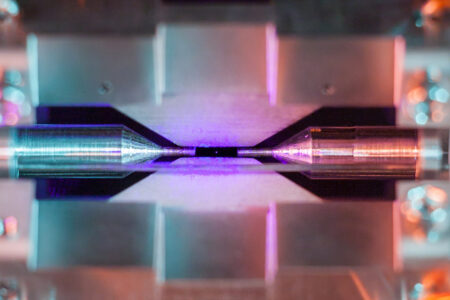
The QCS hub’s mission is to accelerate progress within quantum computing to ensure the UK becomes and remains a leader in the emerging global quantum information economy.
Its research spans across the full stack of hardware and software, from core technologies to potential applications for both near-term and long-term approaches.
Its ecosystem places it at the cutting edge of building the world’s leading quantum computer demonstrator, which will have the potential to provide answers to a vast array of real-world questions – like how to accelerate the development of new drugs and materials, and how to ensure secure communication between many parties.
Current areas of activities
Applications, algorithms, architectures, quantum-classical interface, quantum hardware
Case study
Rigetti UK, part of leading California-based quantum computer developer Rigetti Computing, chose to build its first overseas quantum computer in the UK as part of an Innovate UK project. The consortium includes leading high technology research and manufacturing company Oxford Instruments, software start-up Phasecraft, the University of Edinburgh, and Standard Chartered Bank.
Chad Rigetti, CEO and founder, said: “By providing access to quantum hardware, the collaboration aims to unlock new capabilities within the thriving UK ecosystem of quantum information science researchers, start-ups and enterprises who have already begun to explore the potential impact of quantum computing.”
Quantum Communications Hub

The Quantum Communications Hub aims to deliver future-proof, practical, secure communications with commercialisation potential, by developing existing prototype quantum secure technologies beyond their current limitations; to thus contribute to the establishment of quantum communications technology industries in the UK; and to feed their future expansion, competitiveness, diversification and sustainability.
The hub’s focus is primarily on technology applications reliant on quantum key distribution or QKD – a mature quantum technology which enables ultra-secure distribution of encryption keys, and one which is considered especially promising for early commercialisation.
Current areas of activities
Communications, quantum security, networks, quantum key distribution (QKD), space and satellite communications, quantum internet, chip-based technologies, quantum-safe communications, post-quantum cryptography, standards, next-generation technologies
Case study
KETS Quantum Security Ltd is an award-winning start-up with a mission to enable future-proofed, ultra-secure communications for devices and networks through the commercialisation of integrated photonic technologies. KETS is a direct spinout of the Quantum Communications Hub, created by investigators and researchers involved in the work of the hub during the first phase of the national programme.
The company is currently focused on delivering first products, development kits, that will enable them to deliver key first trials with a number of blue chip organisations they’re currently engaged with across a range of sectors including telecommunications, governments, defence and finance.
Chris Erven, KETS’ CEO, said: “The Quantum Communications Hub was fabulously supportive of us, first as academics with our world first chip-to-chip QKD experiments, and then even more so when we created KETS to commercialise this technology and get it out into the real world protecting our private information.”
“We continue to be proud industrial partners of the Quantum Communications Hub which enables us to access the UK national quantum network, keep abreast and contribute to the latest cutting-edge quantum communications research, and grow our team from the wonderful talent the hub is producing. With the support of the hub, the UK’s national quantum programme, and the wider quantum community, we’re realising our dream of providing a quantum-safe future.”
UK Quantum Technology Sensors and Timing Hub

The UK Quantum Technology Sensors and Timing Hub aims to develop a range of quantum sensor and measurement technologies that are ripe for commercialisation by UK businesses, and, alongside this, it is also looking to train people working within the UK quantum technology community.
Quantum sensors have the potential to be cheaper, lighter, smaller, more sensitive and more energy-efficient than existing, classical sensors. Advances in this area have applications across the board, from healthcare to navigation, to archaeology and everything in between.
Current areas of activities
Healthcare, energy, transport, civil engineering, manufacturing, defence, gravity sensors for surveying, quantum clocks for global navigation satellite systems
Case study
A wearable brain imaging system developed by researchers at the University of Nottingham has recently been installed at the Hospital for Sick Children (SickKids) in Toronto for ground-breaking research into autism.
Cerca Magnetics, a Nottingham-based spin-out company created to develop and distribute the state-of-the-art scanner, has successfully completed this first commercial installation of the new system.
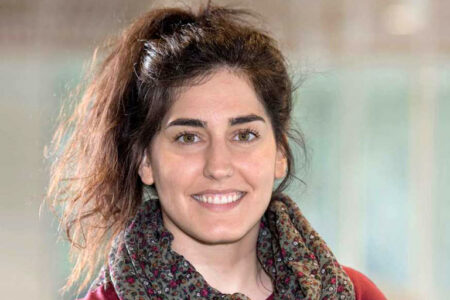
The scanner, which employs quantum enabled sensors to measure magnetic fields above the scalp in a process termed magnetoencephalography (MEG), is being used in Toronto to scan children who have been identified as having a higher likelihood of developing autism due to siblings having the neurodevelopmental disorder.
Dr Elena Boto, University of Nottingham scientist and chief technology officer for Cerca, said: “Five years ago, we started with a few equations on the back of an envelope and a few lines of computer code to simulate a system. To have seen this mature into commercialisable imaging system, which can outperform anything available currently, has been remarkable. There are many advantages to our system, but for me the biggest is the ability to scan babies and children.”
QuantIC – The UK Quantum Technology Hub in Quantum Enhanced Imaging
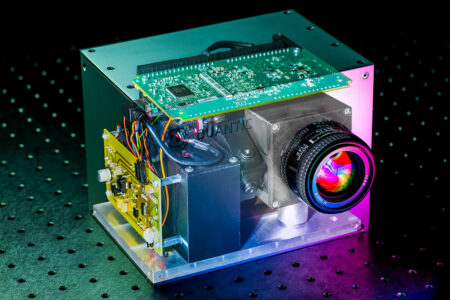
QuantIC’s vision is to pioneer a family of multidimensional cameras operating across a range of wavelengths, time-scales, length-scales, creating a new industrial landscape for imaging systems and their applications in the UK. Applications of quantum cameras include visualising gas leaks, seeing through smoke, and even looking round corners or underneath our skin.
Current areas of activity
Developing new types of ultra-high sensitive cameras with capabilities that extend beyond the scope of existing camera technology. Single photon cameras, single pixel cameras, extreme time resolution imaging, 3D profiling, hyper-spectral, ultra-low flux covert illumination, imaging beyond line-of-sight, and imaging of local gravity fields. This technology will advance imaging for multiple sectors such as healthcare, space, transport, defence & security and climate change.
Case study
A new imaging technique allowing 3D imaging through a fibre the width of a human hair could transform imaging for a wide range of applications in industrial inspection processes and environmental monitoring.
In the longer term, the technique under development could be used for applications in medical imaging. It has been developed by an international team led by Professor Miles Padgett, Principal Investigator for QuantIC, the UK Hub for Quantum Enhanced Imaging.
Professor Padgett said: “In applications like endoscopy and boroscopy, imaging is traditionally achieved by using a bundle of optical fibres, one fibre for every pixel of the image, resulting in devices the thickness of a finger. As an alternative, we are developing a new technique for imaging through a single fibre the width of a human hair. Our ambition is to create a new generation of single-fibre imaging devices that can produce 3D images of remote scenes.”
Building national capabilities
Combined activities and facilities across the programme will create a network of national and international capabilities for academia, industry and government. This will ensure the UK has assured capabilities across the technologies to meet societal, economic and national security objectives, and will build resilience into the sector and the wider economy.
National Quantum Computing Centre
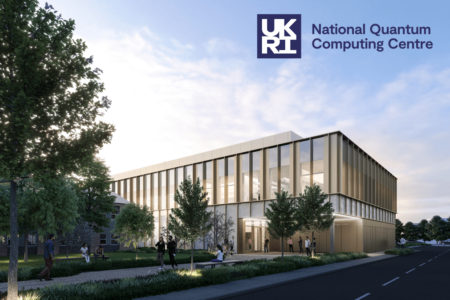 The National Quantum Computing Centre (NQCC) is a new research institution funded through UKRI, which is dedicated to accelerating the development of quantum computing by addressing the challenges of scalability. Working with partners across industry, government and the research community, the NQCC will create the necessary R&D capabilities through coordination and delivery of a technical programme, alongside the commissioning and operation of new facilities.
The National Quantum Computing Centre (NQCC) is a new research institution funded through UKRI, which is dedicated to accelerating the development of quantum computing by addressing the challenges of scalability. Working with partners across industry, government and the research community, the NQCC will create the necessary R&D capabilities through coordination and delivery of a technical programme, alongside the commissioning and operation of new facilities.
The programme will deliver assured quantum computing capability, enabling the UK to remain internationally competitive. The centre will be headquartered in a purpose-built facility at the STFC’s Rutherford Appleton Laboratory campus in Oxfordshire, which is due for completion in 2024.
- Read the latest NQCC Annual Report (PDF, 3.2MB)
- Sign-up for the NQCC’s Newsletter
The Quantum Metrology Institute at NPL
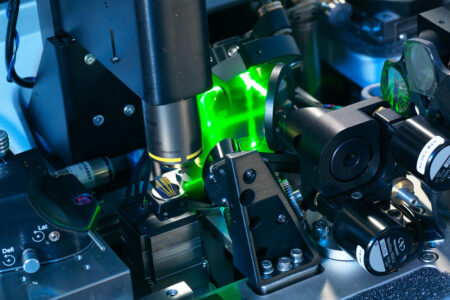
The Quantum Metrology Institute (QMI) at the National Physical Laboratory (NPL) was established in 2015 as part of the first phase of the NQTP. The QMI brings together all NPL’s capabilities in science, metrology and major facilities relevant to the understanding, development and test of quantum technologies. The QMI is a national capability for test and evaluation, accelerating the commercialisation of quantum technologies.
NPL teams work in collaboration with industry and academic partners across the country focused on multiple scientific areas including quantum clocks, quantum communications, quantum computing, quantum sensors and quantum materials. Facilities are available to test and characterise materials, components and systems from the full range of technology areas.
NPL offers schemes for industry to access these facilities and opportunities to collaborate with NPL scientists and engineers to address barriers to innovation, reliability and scaling of quantum systems.
To expand these national capabilities in support of the quantum economy, a new facility – the advanced quantum metrology laboratory (AQML) – has been constructed on the NPL Teddington site. The AQML will give NPL even greater capacity to support the UK in the successful commercialisation and adoption of quantum technologies.
SPEQTRE (Space Photon Entanglement Quantum Technology Readiness Experiment)
YouTube video
SPEQTRE (Space Photon Entanglement Quantum Technology Readiness Experiment)
Led by STFC RAL Space and Singapore technology company, SpeQtral, with satellite platform support from ISISPACE in the Netherlands, the mission aims to develop a secure communications satellite, demonstrating quantum key distribution (QKD) from space. The mission’s innovative and agile development process is expected to pave the way for more efficient and cost-effective space projects facilitating the secure transfer of quantum keys over global distances and tapping into a potential £11.5 billion market over the next decade.
SPEQTRE consists of a space and ground segment. It comprises an entangled photon transmitter and receiver (developed by SpeQtral) and an optical payload and ground station (developed by RAL Space). The UK element will deliver mission design and infrastructure that will provide UK quantum technologies an attractive risk/cost approach to space demonstration.
Research
Transformative technologies are rooted in science. Quantum technologies and the promise for society and economic growth they hold, are not an exhausted area, but an expanding one.
They naturally fall within a family of technologies – electronics, photonics and quantum – within which the UK already has significant strengths. For example, Oxford Instruments is a world leader in cryogenics. Control technologies are another area of strength. The photonics industry in the UK is world leading.
The hubs have made the UK one of the leading quantum research centres. That continuing success is built on the unique strength of the long-lasting partnerships that are forming between industry, research, government and technology; and which are also inter-disciplinary.
The NQTP takes a responsibility for ensuring that these rich and productive relationships across physics, chemistry, mathematics and engineering are sustained and encouraged. We are growing the UK portfolio of quantum science and technology research.
It is widely expected that new quantum tools, which are being developed, will grow further the opportunities for wider science applications.
Quantum Technologies for Fundamental Physics
Quantum Technologies for Fundamental Physics (QTFP) is a £40 million Strategic Priorities Fund (SPF) programme that aims to transform our approach to understanding the universe and its evolution.
The QTFP programme aims to demonstrate how quantum technologies can be utilised to investigate key fundamental physics questions such as the search for dark matter, the nature of gravity and measurements of the quantum properties of elementary particles, thus ensuring the UK remains a first rank nation in the physics and quantum communities around the world.






Driving commercialisation and industrialisation
Quantum technologies will create new markets and upend existing ones across many sectors.
The Industrial Strategy Challenge Fund (ISCF) for quantum technologies has stimulated commercial development, delivering the value, mentoring and opportunity that underpins the NQTP.
YouTube video
Interview with Sir Peter Knight
Businesses supported by ISCF with £153 million have raised £425 million in private sector financing since its programme started, twice the forecast estimate. That private sector support is expected to reach £715 million by 2025.
The Challenge has been successful in encouraging overseas companies, such as California-based Rigetti, to invest and collaborate in the UK. This is helping to build the supply chain infrastructure and expertise that will be crucial to sustain the UK as an independent, quantum power.
The Challenge fund helps fledgling ventures to collaborate with industry and academic partners; and to overcome the commercial and technical challenges they face. It forms a crucial part of the NQTP, one that helps all the most successful UK quantum ventures to find their commercial feet as they tread a path from research to market.
The NQTP is a crucial landing platform for spin-outs emerging from academia. It also serves as an entry point for interested end-users to explore commercial opportunities and develop prototype devices and products.
Commercialising quantum technologies
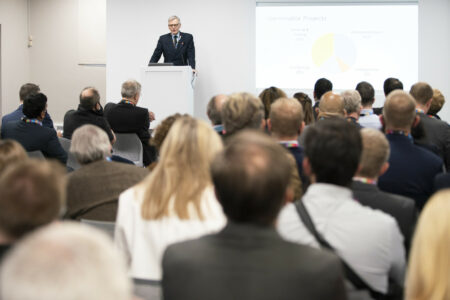
Major funding has been provided through the Industrial Strategy Challenge Fund in waves:
- ‘Wave 2’ (2018-2021) £20m awarded to collaborative, business led projects to develop quantum enabled devices. Projects will develop a quantum gravity sensor to detect hidden underground structures, a quantum clock for precise miniaturised timing, and quantum key distribution through satellites and fibres.
- ‘Wave 3’ (2020-2025) £153m, supported by £205m from industry, to develop new products and technologies based on advances in quantum science. This fund supports product and service innovations, industry-led technology development projects, the supply chain elements across the quantum sector and supporting early-stage, spin-out and start-up quantum technologies companies to secure venture capital. In 2020, £70m of this funding was committed to 37 projects involving over 80 companies.
- A directory of the ISCF funded projects is available.
UK-Canada collaboration programme
The UK and Canada are global leaders in the race to commercialise quantum technologies into new products, processes and services. In 2020, Innovate UK and NSERC (the National Science and Engineering Research Council of Canada) ran a joint call for business led bilateral projects to exploit opportunities for the commercialisation of quantum technologies in the two countries.
The competition was the first industry-led partnership between any two countries to develop quantum technologies, and followed an agreement signed between the two countries in 2017 to share quantum expertise through business and academic collaboration.
The eight winning projects will share grants of £2 million from UKRI and C$4.4 million total investments from Canada under the bilateral initiative.
National Quantum Strategy Missions
Introduction
In March 2023, the government published the National Quantum Strategy, where it committed to publishing long-term quantum missions to galvanise technology development towards ambitious outcomes.
With the biggest impacts for quantum technologies expected in the long-term, time-bound missions can crystallize where we want to get to as a country, focusing the activity and investment needed in the public and private sectors.
Since the publication of the strategy, the government has worked with industry, quantum experts, and investors to develop missions that will bring significant benefits to the economy and society such as:
- increased compute power that can deliver the next generation of drugs, chemicals, and materials;
- new navigation and timing systems to provide resilience and improved accuracy in the event of the denial of satellite systems;
- more precise sensors that deliver new capabilities to help monitor and maintain critical infrastructure, including seeing underground; and
- improved outcomes for patients across areas such as dementia, epilepsy, and cancer through earlier diagnosis and ultra-precise surgery.
Mission-led innovation
Pillar 4 of the UK Innovation Strategy recognises the role government can play in driving growth and supporting priority areas of the innovation system through a missions approach. Mission-oriented innovation – which comes in various forms – sets out to harness innovation through tackling major challenges faced by the UK and the world, catalysing growth and capability in priority technologies. The UK is a pioneer of such approaches, dating back to the Longitude Act of 1714, which inspired and incentivised innovators to invent a practical and reliable method for determining longitude to aid navigation at sea. More recently, rapidly developing, procuring, and manufacturing COVID-19 vaccines demonstrated a mission approach at its best, bringing together multiple organisations with a goal to protect UK citizens.
The quantum missions start with the technology and focus on achieving specific, ambitious outcomes that will have wide-ranging spillover benefits. For example, pulling through quantum sensing capabilities for infrastructure monitoring will have future impacts in developing advanced autonomous systems and drone technologies. They cover areas which are best suited to a mission focus on a particular outcome or outcomes that galvanise investment and collaboration. This means the missions vary in size and scope to best suit the needs of their area, rather than trying to achieve all outcomes the UK wants to reach on quantum technologies. To deliver the National Quantum Strategy, other approaches to stimulate innovation are also being deployed, across themes such as skills, acceleration programmes, and pro-innovation regulation.
Next Steps
In the coming weeks, the government will work with industry, academia, and investors to define the programmes that will help to deliver each mission. These programmes will set out the core activities and milestones that are necessary to unlock investment, advance the science, and develop and demonstrate these technologies in the real world. The ultimate goal is to advance the UK’s thriving – though currently nascent – quantum industry, laying the foundations for future benefits to be continuously unlocked in the decades to come. The programmes will also set out how we will work with international partners to deliver the missions.
If you would like to be part of this process and are not currently in contact with the Office for Quantum at the Department for Science, Innovation & Technology, please signal your interest by emailing ofqenquiries@dsit.gov.uk.
The Mission Headlines
Mission 1
By 2035, there will be accessible, UK-based quantum computers capable of running 1 trillion operations and supporting applications that provide benefits well in excess of classical supercomputers across key sectors of the economy.
Mission 2
By 2035, the UK will have deployed the world’s most advanced quantum network at scale, pioneering the future quantum internet.
Mission 3
By 2030, every NHS Trust will benefit from quantum sensing-enabled solutions, helping those with chronic illness live healthier, longer lives through early diagnosis and treatment.
Mission 4
By 2030, quantum navigation systems, including clocks, will be deployed on aircraft, providing next-generation accuracy for resilience that is independent of satellite signals.
Mission 5
By 2030, mobile, networked quantum sensors will have unlocked new situational awareness capabilities, exploited across critical infrastructure in the transport, telecoms, energy, and defence sectors.
Summary of the Missions
Mission 1: by 2035, there will be accessible, UK-based quantum computers capable of running 1 trillion operations[1] and supporting applications that provide benefits well in excess of classical supercomputers across key sectors of the economy.
We will do this through three mutually reinforcing core outcomes:
- To have competitive UK-based commercial capabilities across hardware, control architecture, and the supply chain that can enable performance in excess of 1 trillion coherent quantum operations;
- To combine this operational capacity with algorithm development and software capabilities to complete multiple useful calculations of significant value to the economy and society on a quantum computer – ones that are not practically possible on the world’s most powerful supercomputers. High impact will be achieved in the following sectors at a minimum: healthcare, finance, transport, defence, energy, and manufacturing; and
- To seamlessly integrate quantum computing into high performance computational workflows, enabling user access and widespread adoption, accompanied by user readiness support across the UK economy.
The mission will set out a scaled approach to achieving the mission, with industrial milestones including:
- By 2028, extending beyond the NISQ-era with 106 quantum operations, which will enable the exploration of applications associated with the simulation of chemical processes, helping to improve catalyst design for example.
- By 2032, demonstrating large-scale error correction capabilities with 109 quantum operations, with applications including accelerated drug discovery.
- By 2035, achieving quantum advantage at scale through reaching 1012(a trillion) quantum operations, enabling applications such as optimising the production of clean hydrogen.
Mission 2: by 2035, the UK will have deployed the world’s most advanced quantum network at scale, pioneering the future quantum internet.
To deliver on the broad opportunities that are presented by quantum technologies, they will need to become firmly integrated within our digital infrastructure, including priority Future Telecoms platforms such as satellite communications. This will transform the way we secure, transmit and compute our data. The mission will focus on achieving the following outcomes:
- Scale computing: A quantum network in 2035 will see clusters of quantum processors networked together within and between data centres to scale computing power, turbocharging our ability to unlock high impact applications. This outcome will be integrated with Mission 1.
- Nationwide connectivity: We will be able to connect researchers and users in major cities and locations across the whole of the UK, enabling them to share information in a quantum state to facilitate secure, trustworthy, and remote access to capabilities and data.
- Early commercialisation: This mission will support further testing, demonstration, and evaluation of near-term commercial opportunities in quantum communications and component technologies. This will build the supply chain and operational learnings, providing the stepping-stone needed for future networks.
- International: The opportunities are global and the UK will work with at least five other countries to collaborate on developing underpinning technologies and connectivity with international quantum networks, including through satellite links. The UK will also take a leadership role in developing quantum networking standards.
- Future Quantum Internet: At the end of the mission, the UK will have the capability to send quantum information from the local to the global scale and to exploit this for the benefit of our economy and society. This will be year 0 for what will become known as the quantum internet.
Mission 3: by 2030, every NHS Trust will benefit from quantum sensing-enabled solutions, helping those with chronic illness live healthier, longer lives through early diagnosis and treatment.
To deliver on the broad opportunities presented by quantum technologies to reduce costs and save lives, quantum-enabled products and services will need to become integrated within our NHS. This mission will build on early UK successes in the development of products to revolutionise healthcare capabilities and pull these through to adoption, providing a firm foundation to grow the UK quantum medical device industry sector.
The mission will also generate a pipeline of next-generation technologies which harness quantum physics to deliver early-stage diagnoses and improved surgical outcomes, across areas such as dementia, epilepsy, cancer, cardiovascular disease, infectious diseases, as well as quantum for life sciences.
Outcomes of this mission include:
- Brain Scanning: By 2028, quantum-enabled brain scanners will enable precision-guided surgery for children suffering severe neurological disease to improve recovery and outcomes. By 2030, adoption of these scanners in dementia will have enabled new research at scale – driving inward investment by global pharmaceutical companies developing dementia drugs.
- Cancer detection: By 2030, new quantum imaging technologies for breast cancer detection will be in use across hospitals in the UK, significantly reducing the need for unnecessary chemotherapy. Hospital trials across a wide range of cancer types will also be well advanced.
- Technology Pipeline: By the end of the mission, a transformative pipeline of healthcare and life sciences technologies will have emerged. This will include: ultra-sensitive rapid tests for infectious diseases; ultra-precise surgery to remove early-stage tumours; portable, quantum-enhanced imaging capabilities to enable rapid examination at bedsides; and new sensing platforms to provide new insights into disease evolution, early detection, and drug monitoring.
Mission 4: by 2030, quantum navigation systems, including clocks, will be deployed on aircraft, providing next-generation accuracy for resilience that is independent of satellite signals.
This mission will develop and commercially exploit quantum navigation systems that are small enough to be deployed on aircraft (amongst other transport systems), combining technologies such as quantum clocks, accelerometers, and rotation sensors/gyroscopes, as well as embedding technologies for ultra-precise mapping. It forms part of a longer-term aim to reach chip-scale – unlocking the ability to integrate these systems into mobile phone-sized systems – and will therefore include facilitation of the fabrication and manufacturing capabilities needed to achieve this. The approach will deliver on a core element of the government’s Position, Navigation & Timing (PNT) Policy Framework published on 18th October 2023 (point 10) to accelerate R&D into quantum navigation and the next generation of optical clocks. The mission will target outcomes to:
- Bridge the ‘valley of death’by pulling-through promising research in quantum navigation systems and demonstrating their integration into moving platforms, bringing together innovators, systems integrators and researchers towards a common goal.
- Reduce the size, weight and powerof current capabilities to enable systems integration and increase usability.
- Develop ‘adoption layers’to support understanding of the technology and how to embed it in wider transport systems.
- Demonstrate capabilitiesin real-world settings, de-risking adoption for businesses.
- Exploit the commercial opportunityby taking a UK lead in frontier navigation technology, opening up further opportunities across areas such as robotics and drones.
- Provide additional resilienceto the UK in the face of GNSS-denial through delivery of independent systems and more precise timing in the future.
Mission 5: by 2030, mobile, networked quantum sensors will have unlocked new situational awareness capabilities, exploited across critical infrastructure in the transport, telecoms, energy, and defence sectors.
This mission focuses on enhancing the capacity and resilience of critical national infrastructure. These will bring significant benefits in terms of reducing maintenance costs and supporting Net Zero ambitions across key sectors. It addresses core technological challenges across quantum sensing capabilities to integrate the technologies into existing systems. This mission will focus on accelerating the development of common technological capabilities to catalyse the private investment needed to pull through to adoption. By the end of the mission, key sectors will have deployed these new capabilities in industrial settings, with further exploitation opportunities around the world being realised. Expected applications include:
- Transport: These systems will revolutionise asset management and planning in the transport sector, unleashing underground sensing capabilities that improve the monitoring and maintenance of subsurface attributes.
- Telecoms: Provide next generation quantum-enabled sensors for capacity building and resilience. For example, high-bandwidth RF sensors or resilient optical links.
- Energy: Protect and support energy storage and transportation through quantum-enabled gas sensors to accurately see and measure emissions of greenhouse and other gases.
- Defence: The significantly increased ability through these systems to find objects in challenging environments will unlock a range of applications throughout the defence sector.
[1] 1 trillion operations refers to the current estimate of the computing power required to run a computational task of significant economic value. It is estimated such a task could take between a few minutes and a few days depending on the design of the computer. Timing expectations will be further defined as the mission programme progresses.
Skills
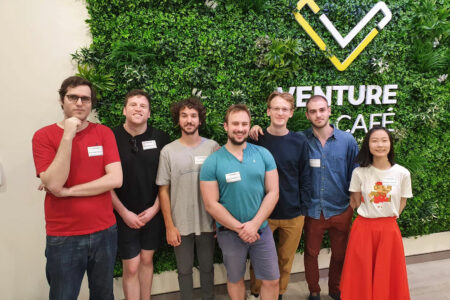
People and know-how are the most important elements of the emerging ecosystem. The UK needs a creative, agile and adaptable, diverse and networked workforce with the right balance of skills to ensure it benefits from opportunities in quantum technologies.
The NQTP aims to ensure doctoral training meets the skills demands within industry, while producing highly qualified researchers; ensure fellowships programmes attract and retain science leaders and future leaders; continue to engage the sector on skills needs for the future; support a diverse and inclusive research environment within quantum technologies; and raise the profile of quantum amongst the public and in syllabuses.
EPSRC Centres for Doctoral Training (CDTs)
In 2018, EPSRC funded 75 Centres for Doctoral Training, across the entirety of its remit, with a total value of over £440 million. Within this group of centres, several awards were made that support doctoral training within the field of quantum technologies, including:
- Centre for Doctoral Training in Delivering Quantum Technologies (University College London)
- Centre for Doctoral Training in Quantum Engineering (University of Bristol)
The Centres of Doctoral Training funded in the 2013 Centre for Doctoral Training call have taken in their last student cohort. These included the Centre for Doctoral Training in Quantum Dynamics (Imperial College); the Centre for Doctoral Training in Delivering Quantum Technologies (University College London) and the Centre for Doctoral Training in Quantum Engineering (University of Bristol).
Training and Skills Hubs
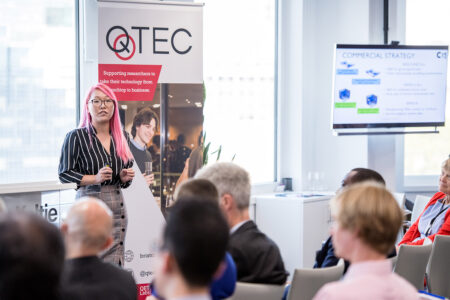
The Training and Skills Hubs in Quantum Systems Engineering are nodes within the national network of Quantum Technology Hubs and have delivered a package of skills training, co-working and mobility, and career development initiatives to develop high-level skills in quantum engineering. They have now taken in their last student cohort.
There are three Training and Skills Hubs in Quantum Systems Engineering:
- Training and Skills Hub in Quantum Systems Engineering: Imperial Centre for Quantum Engineering and Science
- Training and Skills Hub in Quantum Systems Engineering: innovation in Quantum Business – Applications, Technology and Engineering (InQuBATE)
- Training and Skills Hub in Quantum Systems Engineering: The Quantum Enterprise
Fellowships
The first phase of Quantum Technologies Fellowships 2015-2020 supported both the individuals and their teams to help realise the country’s potential. The fellowships were aimed at early and established career stage academics whose research focused on the direct exploitation of quantum phenomena to address the challenges of translation of quantum science through technology to eventual application.
The fellowships complemented the other components of the national programme and investments in Quantum Technology Hubs and Centres for Doctoral Training. The fellows developed potentially transformative research in areas that contribute to the development of novel quantum technologies.
EPSRC are in the process of funding a further round of fellows, with a number being co-sponsored by the National Quantum Computing Centre. The results will be announced in spring 2022.
PhD studentships
Since 2014, Dstl/MOD has funded over 60 quantum related PhD research studies at UK universities in support of the NQTP’s objective of engagement with academia. These studies focus on fundamental and novel research for enabling technologies and subsystems in both practical and theoretical terms for timing, imaging and sensing needs.
Common to partners, a key aspect of this research for defence and security is to decrease size, weight and power requirements of existing systems whilst still maintaining suitable performance.
During this same period, NPL has part funded and/or hosted over 75 quantum PhD students, many of whom have delivered their full research programme at NPL working with the NPL team. At the end of their research many have gone on to work within the UK quantum industry.
National Physical Laboratory skills programme
NPL support training and skills in quantum technology through their STEM Futures programme.
Quantum City
Quantum City seeks to raise the profile of quantum technologies amongst the public and schools to build the future quantum workforce and facilitate discussions about the role of these technologies in society.
It is an initiative that combines various groups within the NQTP to collectively provide coordinated and cohesive messaging around awareness of quantum technologies to society and their specific applications for various aspects of everyday life.
This initiative aims to encourage the uptake of STEM subjects and signpost career pathways in the fields of quantum science and technology development.
Case study
Bristol-based QLM Tech is developing a quantum gas imaging camera to offer continuous monitoring of terminals, rigs and other sources of emissions.
At the heart of QLM’s technology is a revolutionary combination of lidar and quantum single photon detection technology using a single photon avalanche diode (SPAD). Its quantum camera is the only solution that can provide affordable, scalable monitoring of greenhouse gas emissions at the facility scale on a continuous, autonomous basis.
On the eve of COP26, QLM carried out a successful first trial of the quantum gas camera at the real-world National Grid Gas Bacton terminal on the North Norfolk coast.
